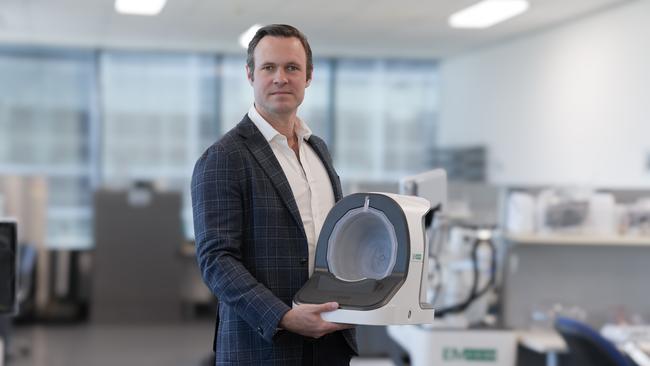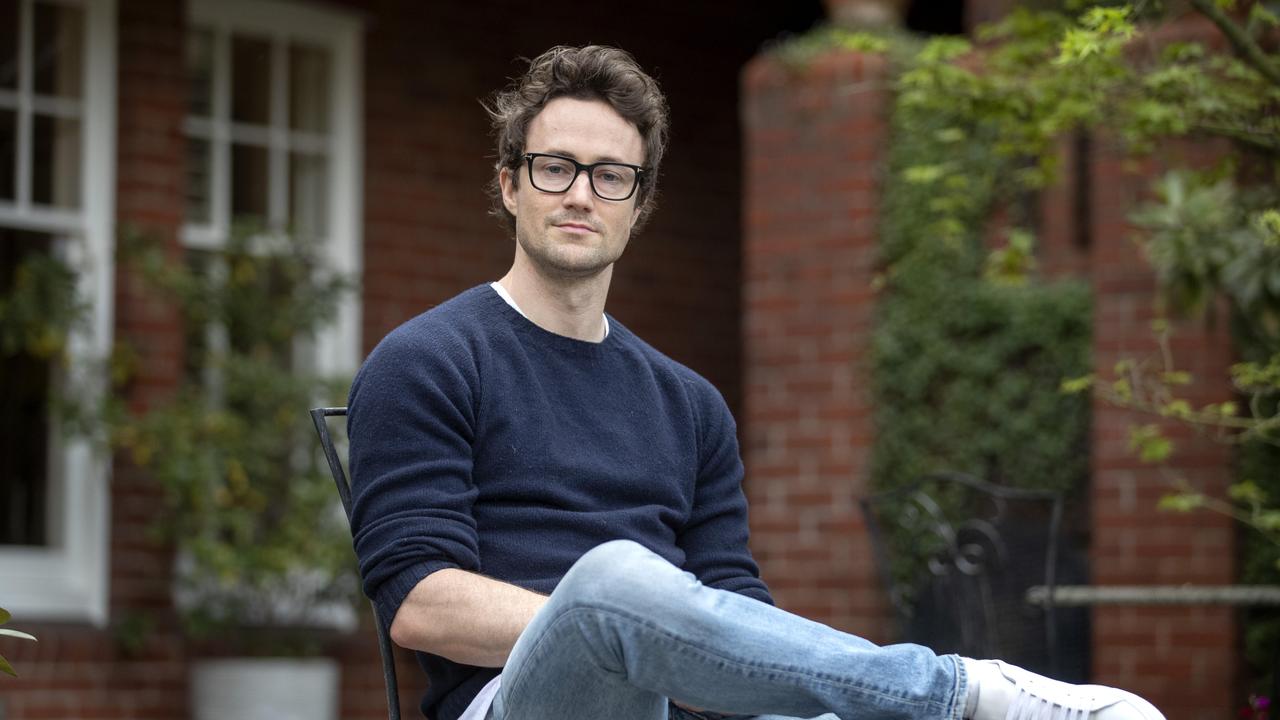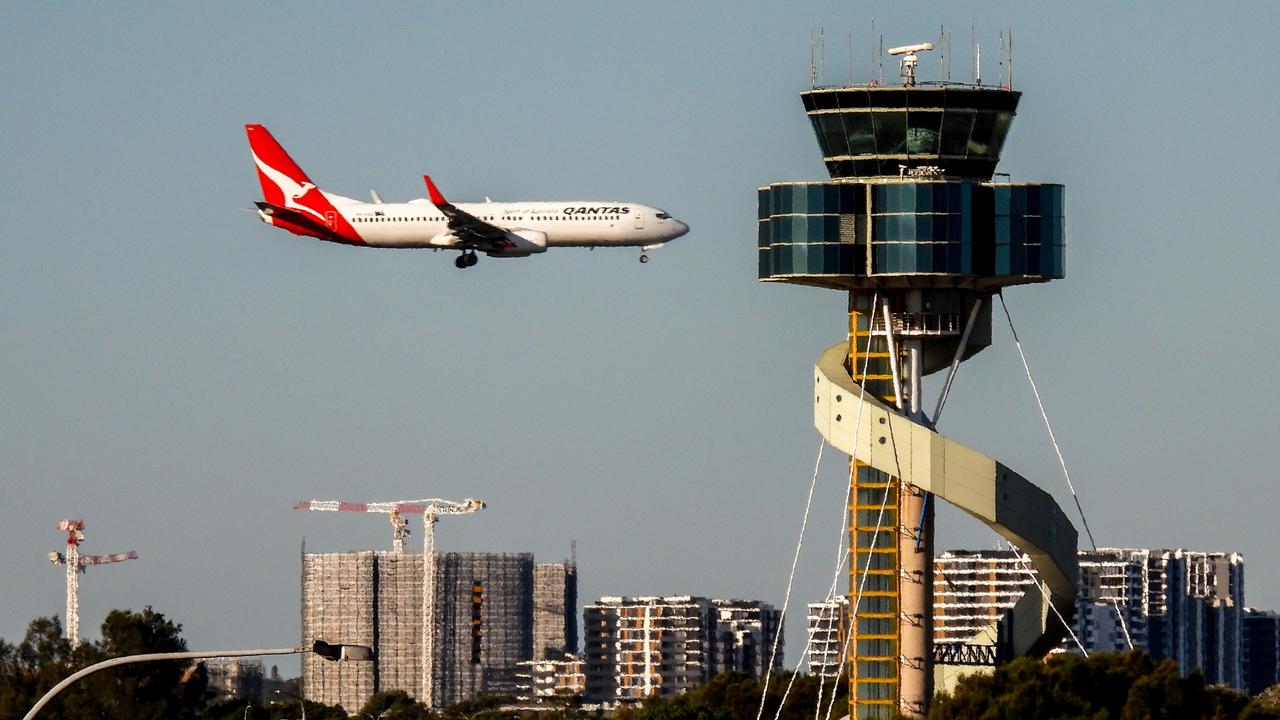Australian company EMVision develops backpack-sized scanner that detects strokes in minutes
Technology originally from the University of Queensland and developed by EMVision is set to be sold across Australia, changing the way suspected strokes are diagnosed and treated.

Business
Don't miss out on the headlines from Business. Followed categories will be added to My News.
Australian medical device company EMVision has developed a backpack-sized brain scanner that can detect strokes in about five minutes, adding valuable time for patients to be treated in what is known as the “golden hour’’.
EMVision – which is listed on the ASX with a market value of $168.7m – intends to sell the product to state ambulance services as well as the Royal Flying Doctors as part of their standard equipment, alongside a defibrillator and ECG monitor.
The cost is yet to be determined, but chief executive Scott Kirkland said the company aimed to make it “economically viable” for ambulances and help ease the annual $6bn burden of stroke. It is expected to particularly benefit regional areas where traditional imaging such as CT and MRI scans may not be available.
“The stats are pretty poor. In rural and regional settings, if you have a stroke, 3 per cent of patients are treated in the stroke unit, versus 77 per cent in a city. So there is a huge amount of inequality when it comes to stroke outcomes,” Mr Kirland said. The technology came from the University of Queensland where it was co-invented by Stuart Crozier, now EMVision’s chief scientific officer.
The company has two imaging devices. The other is a bedside portable scanner dubbed the Emu, which costs about $225,000. This compares with an MRI machine costing several million dollars.
“Because it’s not ionising, it’s not like an X-ray or CT, we don’t need a radiographer or a specialist technician, so a nurse or paramedic can operate the device.”
Mr Kirkland said the company will manufacture the scanners at Macquarie Park, Sydney and intends to export to the US, where the annual stroke burden is more than $90bn.
“It’s rare to treat people in that golden hour. So the view is, if we can bring brain scanning and make it more ubiquitous, not just in the cities, but also in rural regional areas, we can greatly improve the amount of patients that are getting diagnosed … which leads to much better outcomes. So less disabilities is one of the key outcomes.”
Originally published as Australian company EMVision develops backpack-sized scanner that detects strokes in minutes





